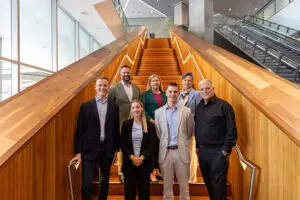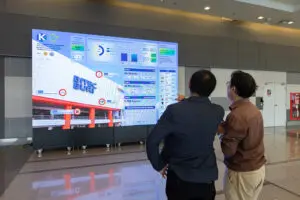The research by The Hague & Partners Convention Bureau and Ottawa Tourism included a 16-person round table and a survey which yielded 109 responses from the association, not-for-profit and government space. The majority of responses came from those working in associations or those who organise events for associations.
“The inevitability of AI in our sector is clear from our research,” said Ottawa Tourism’s vice president of meeting and major events, Lesley Pincombe.
“However, it’s not just about adoption; it’s about understanding and skilfully leveraging AI to enhance our industry.
“This upskilling is not just desirable; it’s essential for the sustainable growth and innovation in our sector.
The research also highlighted the fact that there shouldn’t be fear associated with AI and the knowledge needed for its use.
“Ultimately, it is not for organisers to understand how to build or create AI tools, instead they should be working with technology partners and AI experts to see how AI can be integrated into the work they are already undertaking.”
Of the association sector survey responses, 63 per cent said they were already using AI to organise their events, with just eight per cent saying they would never use AI. However, only 26 per cent of respondents were upskilling in AI, while 23 per cent said they never intended to upskill. Eighty-five per cent said that they had no budget to upskill in this area.
Of those using AI, just seven per cent were using it frequently, while 31 per cent were using it occasionally and 25 per cent used it rarely. AI is mostly being used for marketing – 58 per cent – and content curation – 51 per cent. Twenty-six per cent of respondents who use AI were using it for data analytics.
Interestingly, 73 per cent of those using AI were not telling delegates and stakeholders that they’re using it.
While 57 per cent of those surveyed believed AI would have a positive impact on their work, the consensus amongst respondents appears to be that AI is no great concern in terms of replacing the role of event organisers. When asked whether they believe AI will threaten their jobs, on a scale of one to 10 – with one being no concern at all and 10 being very concerned – the average score was just 3.5 out of 10. In a separate question, almost a quarter of survey respondents didn’t believe AI would impact their event organising greatly. However, amongst round table participants, all expected artificial intelligence to have a significant impact on event organising.
“AI is rapidly becoming a key technology across so many different industries, ours is no different,” said Bas Schot, head of The Hague & Partners Convention Bureau.
“Our industry must adapt swiftly to stay ahead, and this means investing in knowledge and skills that align with these technological advancements.
“However, we must be careful to protect our delegates and ourselves as we make the most of what AI has to offer – we already need to consider both the pros and the cons before we entrust vital information and data to third parties – AI usage is no different.”




















